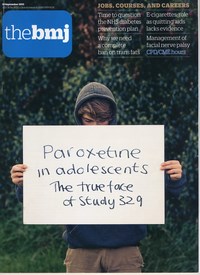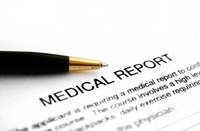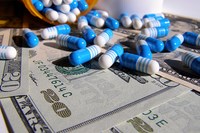 I have been sick over the last two days, which is the worst I have felt in probably three to four years. I have been on fire for two and a half years – lots going on in my life, from professional to family to physical. It has not all been pleasant; nothing ever is, but I have been kicking ass and growing beyond my expectations. But I felt a sore throat over the weekend, culminating in all the nastiness of coughing, runny nose, sneezing, and body aches, and I knew I was in store for some downtime.
I have been sick over the last two days, which is the worst I have felt in probably three to four years. I have been on fire for two and a half years – lots going on in my life, from professional to family to physical. It has not all been pleasant; nothing ever is, but I have been kicking ass and growing beyond my expectations. But I felt a sore throat over the weekend, culminating in all the nastiness of coughing, runny nose, sneezing, and body aches, and I knew I was in store for some downtime.
Usually, I use these moments to really pamper myself in the most fundamental ways: I drink lots of water. I sleep for hours. I eat when I’m hungry. And I let myself feel horrible – sneeze, hack, cough, sweat – everything that people generally hate from being ill. But I both let my body do its thing and give it what it needs: the basics like food, water, warmth, and sleep. Tonight, I took a hot shower and just let the water engulf me; I could feel all my aches and pains loosen. My neck hurt from sleeping in the guest room (I’ve got to change those pillows). My lower back had been hurting for over a month. And then the illness…
As I sat under the water, I thought, what a luxury it is not to freak out about being sick. I didn’t have to think about which medicines I would have to take (Ivermectin or HCQ) or which doctor I’d have to see. I didn’t let my mind go into fantasy nightmares over which uncontrollable force I needed to blame for my illness – not long COVID, not vaccine injury, and not the new HHS director. But truth be told, as I have already said, it is a luxury to be unburdened by these mind-weights.
 What I mean is that you must be relatively healthy to enjoy the freedom from psychological suffering when sick. The average Western person does not have that freedom. Because of poor food choices, lack of activity, and overindulgence in sugar, alcohol, and drugs, the average physiology is under stress.
What I mean is that you must be relatively healthy to enjoy the freedom from psychological suffering when sick. The average Western person does not have that freedom. Because of poor food choices, lack of activity, and overindulgence in sugar, alcohol, and drugs, the average physiology is under stress.
Think about this: People suffer when sick because their already challenged physiology goes haywire when further stressed by infection. So, if your heart has to pump harder because of your weight, then you might feel severe palpitations and chest discomfort when trying to fight off infection. If you have high blood sugar or are diabetic, then you will have a harder time recovering from illness. Same if you drink, smoke, or do drugs (pretty much any of them, illicit or prescription – you will have a weakened immune system and will thus stay sick longer. So, yeah, most people living a poor-health lifestyle probably should be worried.
But, of course, that does not have to be you. Most healthy lifestyles are simply forms of restriction and breaking poor habits. The longer you avoid sugar, the easier it gets to avoid. It’s hard, no doubt – but I’ve done it. And if I can do it, anybody can. But you need to make that choice and then take action. Getting off booze, tobacco, cocaine, or even the pills your doctor gives you can make all the difference in the world for your health. Is mental health important? Enormously! But nobody has ever gotten better from antidepressants. Help functioning? Yes. Fixed or cured? No. Hell no. Please prove me wrong; I want to be proven wrong. Send me all the success stories of people who took antidepressants for a short time and then were fixed. I’ll wait.
 If you eat whole, natural foods, exercise rhythmically, sleep heartily, keep your body mobile (through chiropractic care), keep your mental health sharp, and minimize to near-zero your intake of drugs, prescription or otherwise, you will have this luxury too. When you have optimal health, getting sick is usually short-term and cleansing. That’s right, cleansing. The infection forces your body to expel through sweat, mucous, and coughing all the stuff that enters your body: dust, microorganisms, bugs, and everything else.
If you eat whole, natural foods, exercise rhythmically, sleep heartily, keep your body mobile (through chiropractic care), keep your mental health sharp, and minimize to near-zero your intake of drugs, prescription or otherwise, you will have this luxury too. When you have optimal health, getting sick is usually short-term and cleansing. That’s right, cleansing. The infection forces your body to expel through sweat, mucous, and coughing all the stuff that enters your body: dust, microorganisms, bugs, and everything else.
Only relatively healthy people can relax in this understanding. The average person often gets sick and fears for his or her life. We saw it on steroids during COVID. I still see people wearing masks everywhere. I cannot imagine living that life of fear, but I also live the healthiest lifestyle I know how. That’s why women will joke that their men are like babies when sick…it’s true, but if your man is in typically poor health, then have some sympathy; he may, in fact, feel like he is going to die.
Not me, though. I’ve been sleeping and hot showering, and I took a day off from work to chill and sleep. Shoot, I feel rejuvenated—physically, psychologically, and spiritually. It really is a luxury to experience illness this way.

















